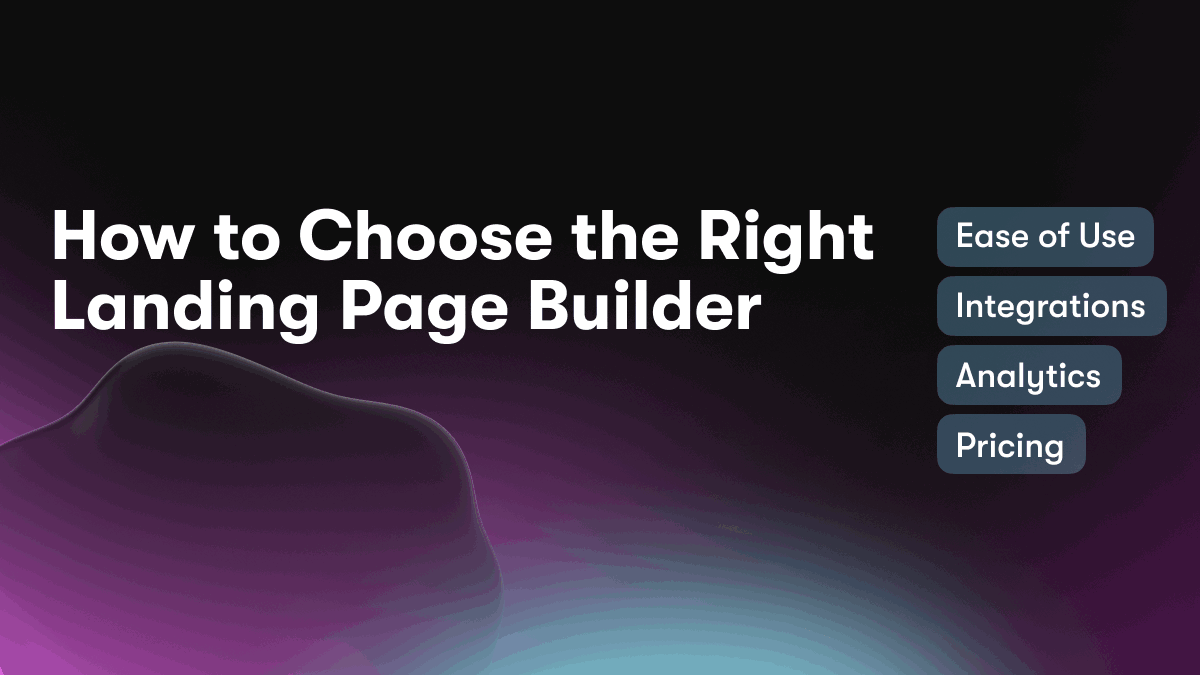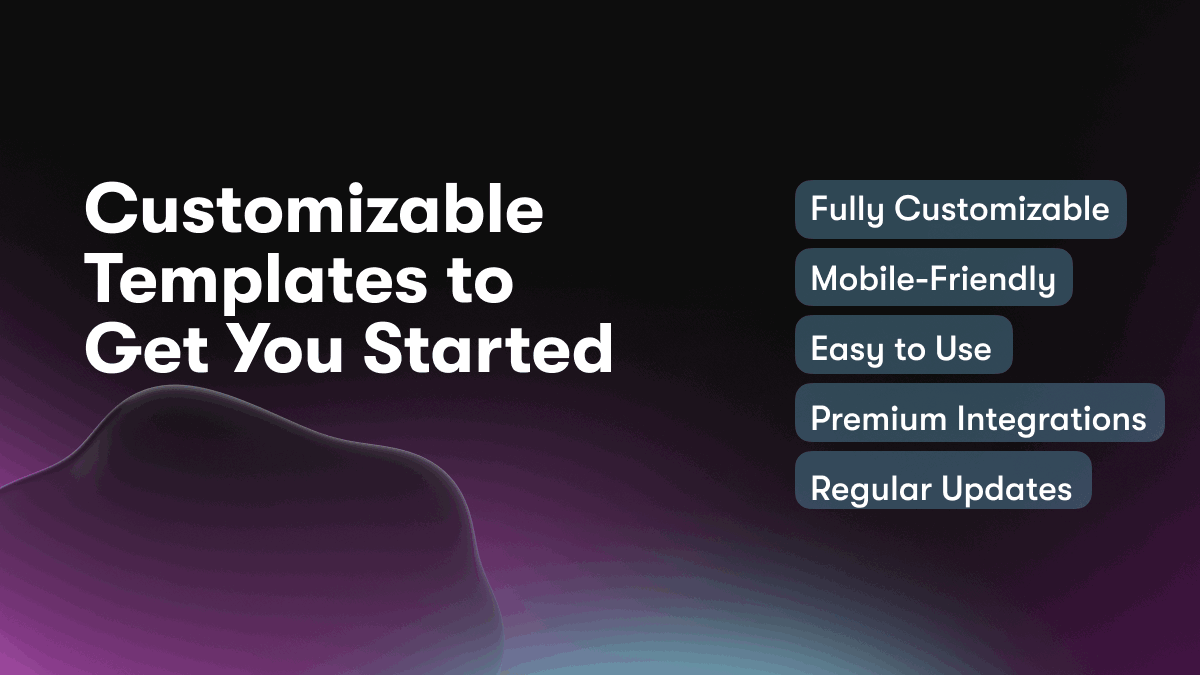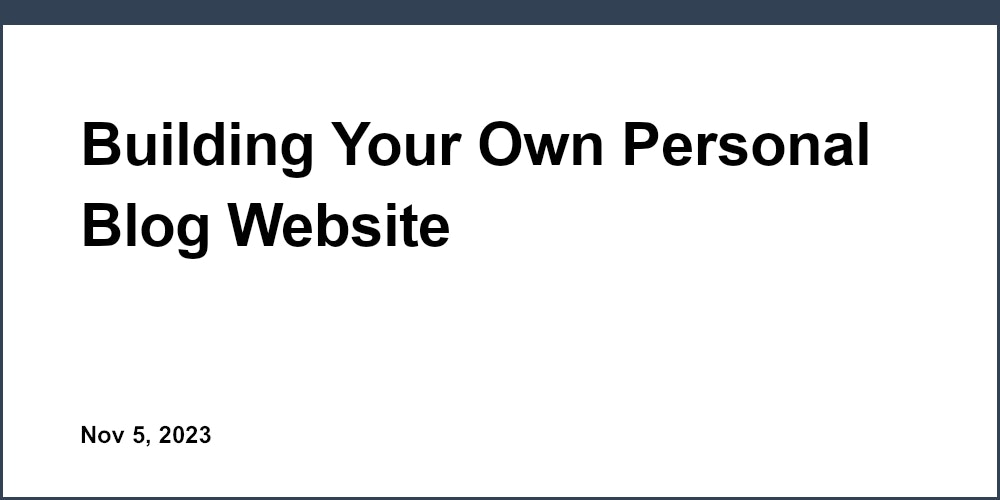As an entrepreneur seeking to establish an online presence, you understand the importance of a well-designed website. However, you may lack the technical skills required to code an entire site from scratch. Fortunately, platforms like Unicorn exist to empower non-developers to create custom web pages. With its intuitive drag-and-drop interface, anyone can craft an attractive landing page, build a blog, or design an ecommerce store. If you're looking for an easy way to learn web page design and launch your startup's digital home, Unicorn could be the perfect solution. Their simple yet powerful builder puts you in full control of the look and feel of your site. In just a few hours, you can go from concept to creation without writing a single line of code. For those seeking an affordable web design course they can complete on their own time, Unicorn delivers a user-friendly experience ideal for beginners and professionals alike. If you want to take your web design skills to the next level, check out Unicorn's article on building advanced web page design in minutes.
What Is a Landing Page and Why Do You Need One?
A landing page is a single web page that serves as the entry point for a marketing or advertising campaign. It's where visitors "land" when they click on an ad or link. Landing pages are important because they allow you to focus your message and guide visitors to take action.
Why You Need a Landing Page
There are several benefits to creating a landing page:
- Focus your message. A landing page allows you to craft content focused specifically on one offer, product, or campaign. This focused messaging helps to clearly convey the benefits and value to visitors.
- Guide visitors to convert. The sole purpose of a landing page is to get visitors to take action, whether that's making a purchase, signing up for a trial, or submitting contact information. By removing navigation and focusing on one specific goal, you can guide visitors down the conversion path.
- Track campaign performance. Landing pages make it easy to track how visitors engage with your content and see how effective your marketing campaigns are in generating conversions and revenue.
- Build your email list. Landing pages are a great way to grow your email list by offering a lead magnet, coupon, or other incentive in exchange for a visitor's email address. Build that list so you can stay in touch with potential customers and promote new offers.
- A/B test for optimization. Landing pages allow you to easily test different elements like headlines, images, button text, and more to see which variations perform the best. Make data-driven decisions to optimize your landing pages for the best possible conversion rates.
With the right design and a clear call-to-action, landing pages can be an incredibly effective tool for any online business. Take the time to create dedicated landing pages for your products, services, and campaigns. Your conversion rates and revenue will thank you.

How to Choose the Right Landing Page Builder
Choosing a landing page builder is an important decision. The platform you select will determine how much time and effort is required to create high-converting landing pages for your business. There are a few key factors to consider:
Ease of Use
Look for an intuitive drag and drop interface that does not require any coding experience. The builder should have pre-designed templates and elements that you can simply drag, drop, and customize to your needs. Some options offer a "what you see is what you get" (WYSIWYG) editor, which allows you to see design changes in real time. An easy to use platform will enable you to build landing pages quickly without needing to learn complex web design skills.
Integrations
Select a landing page builder that integrates easily with the other tools you use, such as your CRM, email marketing service, payment processor, and more. Integrations allow you to automatically capture lead data, trigger autoresponders, process payments, and optimize your sales funnel with no manual transferring of information between platforms. Some builders offer Zapier integration which connects to over 1,000 apps.
Analytics
Choose a builder that provides built-in analytics and A/B testing capabilities. Analytics allow you to see how your landing pages are performing and where you can make improvements to increase conversions. A/B testing enables you to compare different versions of the same page to determine which one converts the best. With data-driven insights, you can create highly optimized landing pages that drive results.
Pricing
Landing page builders offer monthly subscription plans at varying price points based on the number of landing pages and features. Select a plan that suits your current needs but also allows for growth over time. Some builders charge based on leads and clicks in addition to or instead of monthly fees. Compare the pricing and features of different platforms to find an option that delivers good value for your budget.
Unicorn Platform: Learn Web Page Design
Unicorn Platform is an intuitive drag and drop website builder that makes it easy to learn web page design. With its simple yet powerful editor, you can create customized pages for your startup, SaaS, or business in minutes without needing any coding experience.
Easy to Use
Unicorn Platform has an intuitive visual editor that lets you add and customize elements by simply dragging and dropping them onto your page. You can choose from a wide selection of pre-designed sections, columns, images, buttons, and more to build your page. Once added, each element can be edited to change colors, fonts, sizes, and other properties using the sidebar settings.
Mobile-Friendly
Websites built with Unicorn Platform are fully responsive, meaning they automatically adapt to any screen size whether viewed on a desktop, tablet, or mobile device. You won’t need to create separate desktop and mobile versions of your site. As you build your page, you’ll be able to see how it looks on different screen widths and make changes to optimize the experience for your visitors.
Integrations
Unicorn Platform integrates with many popular third-party services to enhance your website. You can easily add an email signup form, blog, store, booking system, and more. Integrations include MailChimp, WordPress, WooCommerce, Calendly, and various other apps. The integrations are pre-built, so you can simply activate the services you want and add their elements to your page.
Styling Options
While the drag and drop editor makes page building simple, Unicorn Platform also provides advanced customization options for those who want more control. You have access to granular controls for colors, fonts, spacing, and other styling for both individual elements and site-wide. You can also write custom CSS and HTML code to override default styling. Whether you prefer an easy or customized approach, you have the flexibility to design your page as desired.
In summary, Unicorn Platform is an easy to use website builder with powerful features to help you craft an engaging web presence for your business or personal brand. With no coding required, you can create a professional site in a short amount of time and then continue optimizing and enhancing it to achieve your goals. Unicorn Platform makes web page design accessible for anyone.
Drag and Drop Interface: No Coding Required
The Unicorn Platform Builder comes with an intuitive drag and drop interface,
meaning no coding experience is required to create professional looking websites and landing pages.
Drag and Drop Modules
Unicorn Platform provides drag and drop modules that can be easily added to your page. These include:
- Text modules: Add headings, paragraphs, lists, images, buttons and more. Just click and drag the module you want onto your page.
- Image modules: Easily add images by dragging the image module onto your page. Upload your own images or choose from Unicorn Platform's library of free stock photos.
- Video modules: Embed YouTube, Vimeo or upload your own videos.
- Columns: Create columns for text, images and modules with a click and drag. Adjust column widths easily.
- Sections: Use sections to visually separate areas of your page. Sections come with optional pre-designed styles.
- Theme blocks: Unicorn Platform includes designer-made sections to help you build pages faster. Choose from features like pricing tables, team profiles, contact forms and more.
Customization Options
While the drag and drop interface does not require coding, Unicorn Platform still provides customization options for those who want more control. You can:
- Adjust padding, margins and sizing for any module
- Change font styles, sizes, and colors throughout your page
- Edit or write custom CSS
- For images, you can adjust sizing, add borders, shadows, etc.
- Select a pre-designed page template or start from scratch. Either way, you have full control to create the exact page design you want.
Unicorn Platform's simple yet powerful drag and drop editor makes it easy for anyone to build professional web pages and landing pages, regardless of technical skill level. With its flexible modules and customization options, you have everything you need to create the website you envision.

Customizable Templates to Get You Started
Unicorn Platform Builder provides professionally designed templates to get you started. Choose from pre-made templates for landing pages, about us pages, contact forms, and more. The templates are fully customizable so you can tweak them to match your brand and needs.
Fully Customizable
Each element in the templates can be edited or replaced. Change background colors and images, update text, add or remove sections, and reorganize the layout. You have full control over the look and feel of your page.
Mobile-Friendly
All templates are responsive, meaning they automatically adapt to mobile devices and screens. You don’t have to make a separate mobile version of your site. The templates look great on all devices right out of the box.
Easy to Use
The templates use a simple drag and drop interface, so no coding experience is needed. Just click, drag, and drop to add sections, images, buttons, photo galleries, and more. Update text, colors, and other properties directly in the page builder. See your changes in real time.
Premium Integrations
Many templates also come with premium integrations for email marketing, blogs, appointment booking, and ecommerce. Connect your favorite third-party services in just a few clicks.Sell products, book appointments, capture leads, and engage your audience.
Regular Updates
The template library is continually expanding and improving. We release updates regularly to add new designs, ensure templates meet web standards, and incorporate the latest web design trends. Your site will always look fresh and modern.
Using the customizable templates in Unicorn Platform Builder allows you to quickly launch a professional looking site without needing advanced technical skills. Choose a template that suits your needs and tweak it to match your brand for a unique web presence in no time. Focus on what matters most—engaging your visitors and growing your business.
Add Images, Text, Buttons and More With Ease
Unicorn Platform Builder makes it incredibly simple to add engaging images, text, buttons, and more to your web pages. With an intuitive drag and drop interface, no coding experience is required to create an eye-catching landing page or website.
Add Images
To include images on your page, click the “Add Image” button in the left-hand toolbar. Select an image from your computer or drag and drop an image onto the page. Resize and reposition the image as needed by clicking and dragging the corners or center of the image. Add alt text, change the image size, and edit other options in the sidebar.
Include Text
Add text boxes, headings, paragraphs, and lists with the text options in the toolbar. Select a text box to start typing or paste content from another source. Choose from multiple fonts, sizes, colors, and styles to customize the look and feel of your text. Add emphasis with bold, italics, underlining, highlighting, or change the text alignment.
Add Buttons
Buttons allow visitors to take action on your page like subscribing to a mailing list, purchasing a product, or contacting you. Click “Add Button” and select a button style. Enter the button text and link the button to a URL or email address. You can also set the button size, color, and add custom CSS styling.
Additional Elements
Unicorn Platform Builder provides additional elements to enhance your web pages like:
- Dividers - Add horizontal divider lines between sections.
- Spacers - Insert blank space between elements.
- Icons - Include font icons or upload custom icons.
- Forms - Create contact forms, email signup forms, and more.
- Columns - Organize content into columns for an engaging layout.
- And more - Also includes progress bars, tabs, accordions, modals, and sliders.
With a simple yet powerful page builder, Unicorn Platform Builder makes designing a professional website or landing page an easy, enjoyable experience for users of all skill levels. Create the exact page you envision with an extensive collection of elements and full customization capabilities.
Connect Your Domain and Publish Your Landing Page
To publish your Unicorn Platform landing page, you will need to connect your own domain name. A domain name is the web address that visitors will type in to access your site, such as yourcompany.com.
Step 1: Purchase a Domain Name
If you do not already own a domain name, you will need to purchase one from a domain name registrar such as GoDaddy, Namecheap, or Google Domains. Domain names typically cost between $10 to $20 per year. Select a domain name that is short, memorable, and relevant to your business or site topic.
Step 2: Connect Your Domain
Once you have purchased your domain name, you will need to connect it to your Unicorn Platform site. Log into your Unicorn Platform account and go to Settings → Domains. Click "Add a Domain" and enter the domain name you purchased. Unicorn Platform will provide the DNS settings you need to enter at your domain registrar to point your domain to your Unicorn Platform site.
Step 3: Update DNS Settings
Log into your account at the domain registrar where you purchased your domain. Locate the section for managing DNS or nameservers. Enter the DNS settings provided by Unicorn Platform. This may include an A record pointing your root domain (example.com) to Unicorn Platform's IP address as well as CNAME records for subdomains (www, blog, etc.). Save the changes to your DNS settings.
Step 4: Verify and Publish
It can take 24 to 48 hours for the DNS changes to propagate across the internet. Return to your Unicorn Platform domain settings page. Your new domain should now show as "Verified." You can now publish your landing page and it will be live at your custom domain! Visitors typing in your domain name will see your new Unicorn Platform landing page.
By following these steps, you can connect your own custom domain name to your Unicorn Platform landing page and publish it live to the web. Promoting your new landing page and domain name through social media, email marketing, and search engine optimization will help drive more traffic and leads to your site.
Track Your Landing Page Performance With Analytics
To fully understand how visitors are engaging with your landing page, you'll want to set up analytics. By tracking key metrics, you can optimize your page for maximum conversion rates.
Google Analytics
Google Analytics is a free tool that allows you to track traffic and behavior on your website. Once set up, it will track page visits, referral sources, conversion rates, and more. To get started, sign up for a Google Analytics account and add the tracking code to your landing page.
Metrics to Track
There are several key metrics you'll want to track for your landing page:
- Pageviews: The total number of times your page has been viewed. This shows how much traffic your page is getting.
- Bounce rate: The percentage of visitors who leave your site after viewing only one page. A high bounce rate means visitors are not engaging with your page.
- Average time on page: How long visitors spend on your landing page. Higher times are better and show that visitors are interested in your content.
- Conversion rate: The percentage of visitors who take your desired action (e.g. sign up, purchase). Track how changes to your page affect conversion rates.
- Traffic sources: Where your visitors are coming from (social media, search engines, etc.). Focus your marketing efforts on the sources that drive the most traffic.
Make Data-Driven Decisions
Use the data from your analytics to make changes to your landing page. Some examples:
- If bounce rates are high, consider revising page content or design.
- If traffic from social media is low, post more on those channels to drive referral traffic.
- If conversion rates drop, try offering a promotion or revising your call-to-action.
Continuously track your key metrics and make small changes to optimize your landing page. Over time, you'll achieve higher traffic, lower bounce rates, and maximum conversion rates. Analytics provide insight into what's working and how you can improve—so make the most of this useful tool!
Web Page Design Course Online free: Commonly Asked Questions About Building Landing Pages
When building landing pages, you may have some questions about the best ways to design an effective page. Here are some of the most commonly asked questions and answers to help guide you:
What elements should be included on a landing page?
The key elements to include on a landing page are:
- A headline that captures attention and communicates your key message
- An image that reinforces your headline and branding
- A brief description of your offer or product and its key benefits
- Social proof like testimonials, reviews, or case studies from happy customers
- A call-to-action like “Sign Up Now” or “Learn More” that leads visitors to convert
- Contact information so visitors can get in touch with any questions
How long should my landing page be?
As a general rule of thumb, a landing page should be relatively short, around 300 to 500 words. You want to be concise while still communicating the most important details about your offer. If a visitor has to scroll excessively, they may lose interest before converting. Focus on being direct and highlighting only the most persuasive and compelling information.
What is the ideal page layout?
An effective landing page layout includes:
- A visually engaging hero section at the top with a headline, image, and brief paragraph
- Well-spaced sections with clear headings for ease of reading
- Left-aligned text with a minimum width of 960px for desktop
- A form for visitors to input their contact information, typically on the right side
- A call-to-action button that is prominently displayed, usually in the hero section and again at the bottom
- Consistent design elements like fonts, colors, and styling throughout the page
By following these best practices for landing page design, you'll be well on your way to building optimized landing pages that capture attention, drive conversions, and achieve your business goals. Let me know if you have any other questions!
Conclusion
As you have seen, Unicorn Platform makes web page design accessible for anyone. With its intuitive drag and drop interface and variety of modern templates, you can create a professional landing page or full website in minutes without any coding skills required. Whether you want to build a landing page to capture emails, create an about us page to tell your startup's story, or design an entire ecommerce store, Unicorn Platform provides the tools you need to bring your vision to life on the web. Now that you've learned the basics of web page design with this powerful yet easy to use platform, you're ready to start creating and sharing your digital presence with the world. The only limit is your imagination.



